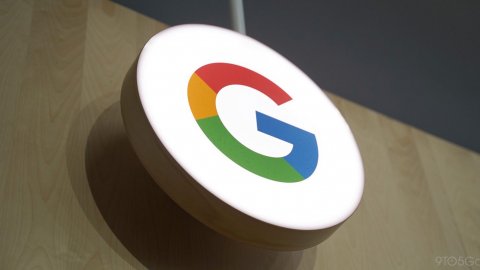
The fine was imposed in 2017 after a seven-year European Antitrust investigation, which showed how the search engine had favored its price comparison service to the detriment of the competition, thus creating a illegal advantage.
Google Specifically, the competitors were almost never reported on the first page of the results, the ones that are most taken into consideration by users. According to research at the time of the Commission, first page results earn 95% of clicks, second page results only 1%. For this reason, Google allegedly "abused its dominant position on the search market to promote its shopping comparison service, downgrading that of its competitors", stated Margrethe Vestager, EU Commissioner for Competition in 2017.
In followed by Google appealed against the decision of the EU Commission, but as already mentioned the Court of the European Union rejected the appeal thus confirming the very high fine of 2.42 billion euros.
Source Did you notice errors?
Google Loses First Round of Fight Against $9.5 Billion EU Fines
 © Photographer: DENIS CHARLET/AFP Google Loses EU Court Fight Over $2.8 Billion Antitrust Fine
© Photographer: DENIS CHARLET/AFP Google Loses EU Court Fight Over $2.8 Billion Antitrust Fine(Bloomberg) -- Google suffered a resounding defeat in its appeal of a 2.4 billion-euro ($2.8 billion) European Union antitrust fine in a judgment that bolsters the bloc’s crackdown on the growing power of Silicon Valley.
CONSTELLATION BRANDS, INC.
Most Read from Bloomberg
The U.S. search giant breached competition rules and deserved the penalty doled out by the European Commission in 2017, the EU’s General Court in Luxembourg ruled on Wednesday. Judges backed the EU’s finding that Google shouldn’t favor its own shopping service over rivals, an issue that’s triggered complaints against other tech giants.
“The ruling will make it harder for platforms to favor their own services because they risk infringing competition law as soon as doing so harms a rival,” said Dirk Auer, a professor at Liege University in Belgium. “Unfortunately, this will be detrimental to consumers.”
The commission’s penalty for Google, the biggest at the time, was the first in a trio of decisions that form the centerpiece of EU Competition Commissioner Margrethe Vestager’s bid to rein in the growing dominance of big tech companies. She’s fined the Alphabet Inc. unit about $9.5 billion in total and is still probing the company’s suspected stranglehold over digital advertising.
The court ruling “delivers a clear message that Google’s conduct was unlawful and provides necessary legal clarity,” European Commission spokeswoman Arianna Podesta told reporters at a Brussels press conference. The EU “will continue to use all tools at its disposal to address the role of big digital platforms.”
Google will review the ruling closely, it said in an emailed statement. It insisted it has complied fully with the EU order since 2017.
“Our approach has worked successfully for more than three years, generating billions of clicks for more than 700 comparison shopping services,” it said.
While the regulator was largely vindicated in the ruling, judges found that the commission had failed to prove that Google had harmed the market for general search, striking out the EU’s finding of a breach. That leaves the decision solely targeting the shopping-search service.
In a separate ruling on Wednesday judges in the U.K. Supreme Court tossed out a class action suit against Google over data privacy concerns that could’ve proved costly for the firm.
The New Tools the EU Wants to Crack Down on Big Tech: QuickTake
A loss for Vestager could have stalled an EU crusade against the powers of tech giants that’s encouraged other global antitrust regulators, including the U.S. and U.K. Draft EU rules in the works may also curb firms favoring their own services.
A company’s actions to make its own services more prominent “involves a certain form of abnormality,” the court said. “A general search engine is infrastructure,” it said, countering a view that Google is free to act as it wishes on its own website.
The result could also sway Amazon.com Inc., Apple Inc. and Meta Platforms Inc.’s Facebook to rethink how hard they fight the EU in current investigations.
The ruling may also help smaller firms to seek millions of dollars in damages in national courts in claims that Google hurt their nascent businesses.
Along with the fine, Google was ordered in 2017 to make changes to the way it displays shopping search results that might help rivals grab some of the valuable ad space on search pages. Smaller search services have complained the EU never pushed Google to go far enough to help them to attract sufficient visitors. EU officials argued that they can only create the conditions for firms to compete.
Click here for more news about Google’s legal battles
Foundem, a U.K. comparison shopping service that triggered the probe, said the ruling “does not undo the considerable consumer and anti-competitive harm caused by more than a decade” of Google’s behavior. It and Kelkoo, another shopping service, asked the EU to now do more to enforce an order of equal treatment for smaller rivals.
The case is: T-612/17, Google and Alphabet v. Commission.
(Updates withd details of the U.K. suit in the ninth paragraph)
Most Read from Bloomberg Businessweek
©2021 Bloomberg L.P.